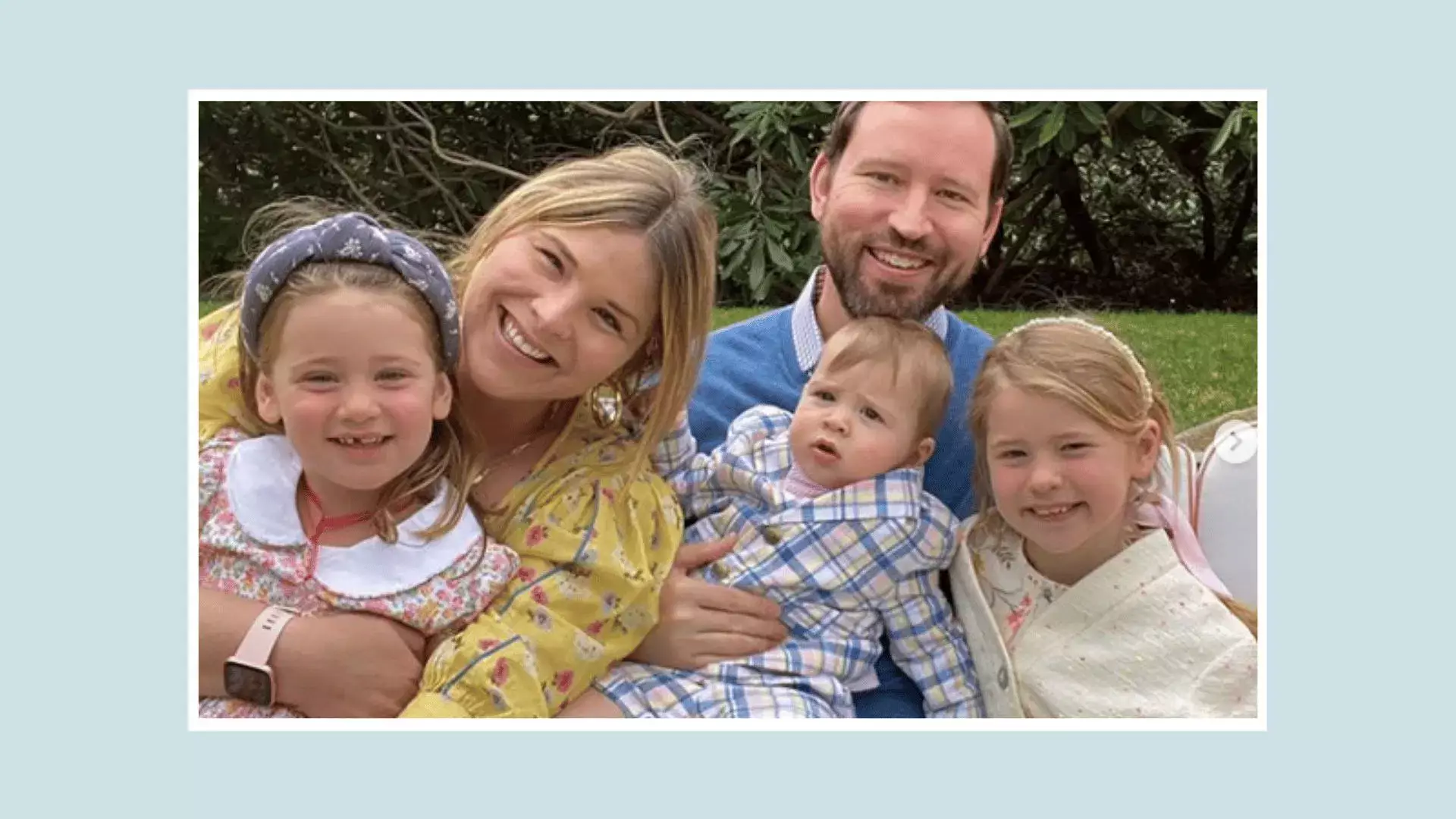Motherhood, a journey filled with joy, challenges, and a kaleidoscope of emotions, does not spare even the most glamorous figures in society. Jenna Bush Hager, daughter of former President George W. Bush and a beloved television personality, openly shares her candid experiences in her memoir, *Everything Beautiful in Its Time: Seasons of Love and Loss*. In the book, Hager explores the trials and triumphs that come along with raising her three children—Mila, Poppy, and Hal—capturing the emotional rollercoaster that often accompanies the journey of motherhood.
Jenna’s narrative begins at a poignant juncture in her life, reflecting on the heartbreaking experience of an ectopic pregnancy that preceded the birth of her first child. She reveals the profound impact this experience had on her mental state and her subsequent approach to parenthood, marking a touching introduction to her struggles with loss. Mothers from all walks of life can resonate with Hager’s vulnerability as she navigates the complexities of her emotional landscape, which was further amplified by the news of her surprise third pregnancy.
Upon learning that she was expecting her third child, Bush Hager experienced an inner conflict characterized by “survivor’s guilt.” She recounts a sense of unease as she reflects on her close friendships, especially with her twin sister Barbara and friend Hoda Kotb, both of whom were attempting to expand their families at the same time. Hager’s initial emotions hovered between joy and guilt, bringing to light the often-unspoken burdens of maternal longing and societal expectations.
In her memoir, Hager touches upon the delicate nuances of sharing this news with those around her. She writes, “I knew I should have felt joy, but my first feeling was a surge of survivor’s guilt.” This statement encapsulates the intricate web of relationships that intertwine with personal milestones, revealing how joy for oneself can sometimes be overshadowed by empathy for others. It raises profound questions about the nature of happiness and sharing in a world where struggles with infertility remain prevalent.
Family Dynamics and Emotional Sensitivity
In exploring her family dynamics, Hager reflects on how her parents responded to her news. Former President George W. Bush’s immediate concern for Barbara’s feelings highlights the sensitivity that often surrounds family discussions about reproduction—a sentiment shared among many families. In contrasting responses, her mother, Laura Bush, offered wisdom that resonates universally: “Every woman gets her baby in her time.” This phrase embodies the warmth and understanding necessary in navigating the highs and lows of family life, emphasizing that each journey is uniquely structured.
Further complicating the emotional fabric of Hager’s experience was her husband, Henry’s, and her older age during her third pregnancy. At 39, Hager candidly admits the societal labels placed upon women who conceive later in life, notably the term “advanced maternal age.” This allows her to delve into the broader themes of societal expectations and personal fear—fear not just of pregnancy complications, but of not fitting into conventional timelines and narratives surrounding motherhood.
In a touching segment of her memoir, Hager details the emotions that enveloped her when revealing her pregnancy to her friend Hoda Kotb, a fellow mother who had worked diligently to adopt her daughter. The friendship between Hager and Kotb illustrates the beauty of support networks among women and mothers. Rather than feeling resentful, Kotb wholeheartedly embraced Hager, celebrating joyfully, and in doing so, paved the way for Hager to finally embrace her own pregnancy with excitement rather than trepidation.
The shift from guilt to joy in her relationship with Kotb serves as a powerful reminder of the importance of cultivating supportive spaces where mothers can share their experiences without fear of judgment. The emotional catharsis that Hager describes—crying together in relief—symbolizes the healing power of friendship in what can often feel like an isolating experience.
Jenna Bush Hager’s journey through motherhood, as outlined in her memoir, resonates with a multitude of emotions that women everywhere can relate to. By bravely sharing her battles with guilt, vulnerability, and the joy that comes from supportive relationships, she creates a narrative that honors the multifaceted nature of motherhood. Her story not only provides comfort to those traversing similar paths but also serves as a celebration of resilience, hope, and love within the often challenging, yet beautifully complex world of parenting.

